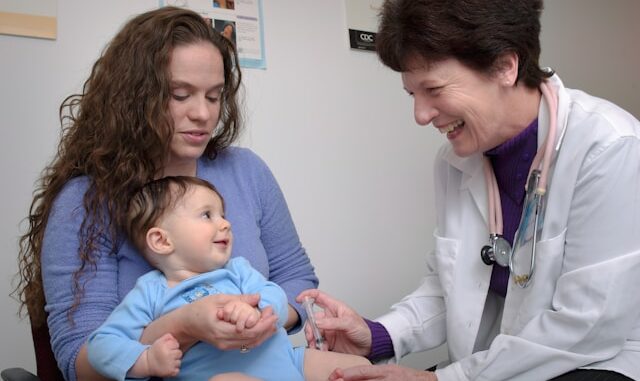
Published: October 18, 2025
By: Emily Navarro
Every move brings a mix of excitement and uncertainty. As boxes fill your new home, your focus shifts toward building routines and community connections. In all the change, one priority often defines peace of mind—finding the right doctor for your child. Families navigating South Florida family life know how vital reliable healthcare becomes when a new school year starts. Understanding what to look for in a local pediatrician early ensures your child’s health remains steady, no matter how many new addresses appear in your past.
Why Choosing the Right Pediatrician Matters?
Every parent wants more than medical advice—they want a partnership. A skilled pediatrician helps parents anticipate health milestones and manage concerns before they grow. When you choose someone who listens and respects your instincts, you gain confidence in every decision about your child’s care.
Besides routine checkups, pediatricians help decode behaviors, eating habits, and emotional changes. They can detect subtle shifts that might escape even the most attentive parent. Through consistent care, your child feels secure and supported, and you gain peace of mind knowing expert help is close.

Key Qualities That Define the Best Pediatricians
Before settling on a doctor, reflect on what to look for in a local pediatrician beyond credentials. Your choice should reflect both expertise and alignment with your family’s lifestyle. Every clinic offers unique advantages, yet only a few truly match your values and expectations.
Here are essential qualities to keep in mind:
- Experience and communication: Choose a doctor who explains medical issues in clear, calm terms.
- Availability: Emergencies rarely wait. Reliable access during off-hours prevents stress.
- Approachability: A warm manner helps children feel safe during visits.
- Clean, efficient practice: Well-run offices save you time and reduce anxiety.
- Team coordination: Nurses and assistants play key roles in care consistency.
A pediatrician’s tone and patience reveal much about their approach. Observe how staff treat patients and whether the office feels welcoming. Even small gestures—like greeting your child by name—create trust.
Pediatricians and a Hassle-Free Relocation
Relocation often brings piles of paperwork, new school forms, and endless utility arrangements. During this busy time, healthcare planning often gets overlooked. Yet, connecting your child’s medical care to your new address creates peace of mind. Including a doctor search in your moving checklist for a hassle-free relocation ensures every health need stays covered.
Community boards and parent forums offer reliable feedback about trusted doctors nearby. A few quick insurance checks can prevent last-minute confusion once you arrive. Schedule an introductory visit early instead of waiting for illness—this small effort saves stress later.
The right pediatrician soon becomes more than a healthcare provider. They help you find specialists, child programs, and wellness services that anchor your family in the new community.
Proximity to Schools and Home
Location affects more than convenience—it impacts peace of mind. When your pediatrician’s office sits near your home or your child’s school, help is always within reach. In busy mornings or urgent moments, short travel times can make a difference.
Parents balancing new routines know time is a valuable resource. A local clinic allows faster appointments and fewer missed school days. It also keeps you close to familiar faces, from reception staff to nurses who recognize your child.
Technology now expands these benefits. Some pediatricians offer virtual consultations for minor issues or follow-ups. This hybrid approach saves energy and keeps your child comfortable in familiar surroundings. Proximity blends with accessibility to create a seamless support system.
When you choose your doctor, imagine your daily routes—school drop-offs, grocery runs, and commuting schedules. A well-located practice weaves into those paths effortlessly. Each visit becomes less of a task and more of a reassurance that your family’s health stands on steady ground.

Checking Credentials and Networks
Trust in a pediatrician starts with proof. Before scheduling that first appointment, confirm your doctor’s qualifications. Board certification shows the pediatrician meets national standards for medical expertise. Hospital affiliations also matter since they connect your child’s care to reliable facilities.
Parents often overlook insurance compatibility until bills arrive. Always verify that your chosen clinic aligns with your plan. This step avoids delays and unnecessary stress. It also helps you focus on care rather than paperwork.
Online reviews and local recommendations add another layer of insight. Patterns in feedback often reveal how doctors treat families. Still, remember that one poor review may not define the entire experience. Ask school nurses or neighborhood parents for honest suggestions—they often know which clinics truly care.
Emotional Health and School Transitions
New schools introduce excitement and anxiety. During these shifts, a pediatrician often becomes a quiet supporter behind the scenes. They can guide parents through early signs of stress or fatigue that come with change. Doctors who value mental well-being offer an extra level of care that goes beyond physical checkups.
Pediatricians also help children manage nerves or social challenges. Simple advice about sleep, diet, and structure makes adaptation smoother. A caring doctor can spot signs of anxiety early and suggest gentle interventions.
In this stage, families often need emotional balance. Reliable guidance helps parents help kids adjust to new schools without overwhelming them. When your pediatrician collaborates with teachers or counselors, transitions feel more natural. Together, these professionals form a team that keeps your child confident through uncertainty.
Try To Avoid The Common Mistakes
Parents sometimes choose convenience over connection. A short drive or same-day slot sounds perfect—until the quality disappoints. Avoid skipping important questions about after-hours access, on-site testing, or emergency protocols. These details often decide whether your care feels secure or chaotic.
Addressing parenting pitfalls means recognizing your role in the healthcare partnership. Ask questions. Request explanations. Follow through on appointments even when schedules tighten. Active participation keeps your child’s care consistent and effective.
A proactive mindset ensures that no symptom, behavior, or concern goes unnoticed. The best pediatricians welcome that curiosity—it shows you care deeply about your child’s growth and comfort.
When Should You Reassess Your Choice?
Family needs shift as children age. What worked for toddlers may not suit preteens. A new school district or a change in insurance can also reshape your healthcare landscape. Stay aware of these shifts instead of waiting for issues to appear.
Reevaluation helps confirm if your doctor still aligns with your values. Revisit what to look for in a local pediatrician when your child reaches new stages of development. A practice that evolves with your family keeps the relationship relevant and dependable.

Now You Know What To Look for in a Local Pediatrician
Parenthood thrives on preparation. Each choice—school, home, doctor—builds the structure your child depends on. By approaching healthcare with purpose and thinking about what to look for in a local pediatrician, you transform uncertainty into calm. The right pediatrician supports not only your child’s growth but your own confidence as a parent. Stay informed, stay curious, and trust that every thoughtful decision strengthens the foundation of your family’s new beginning.
